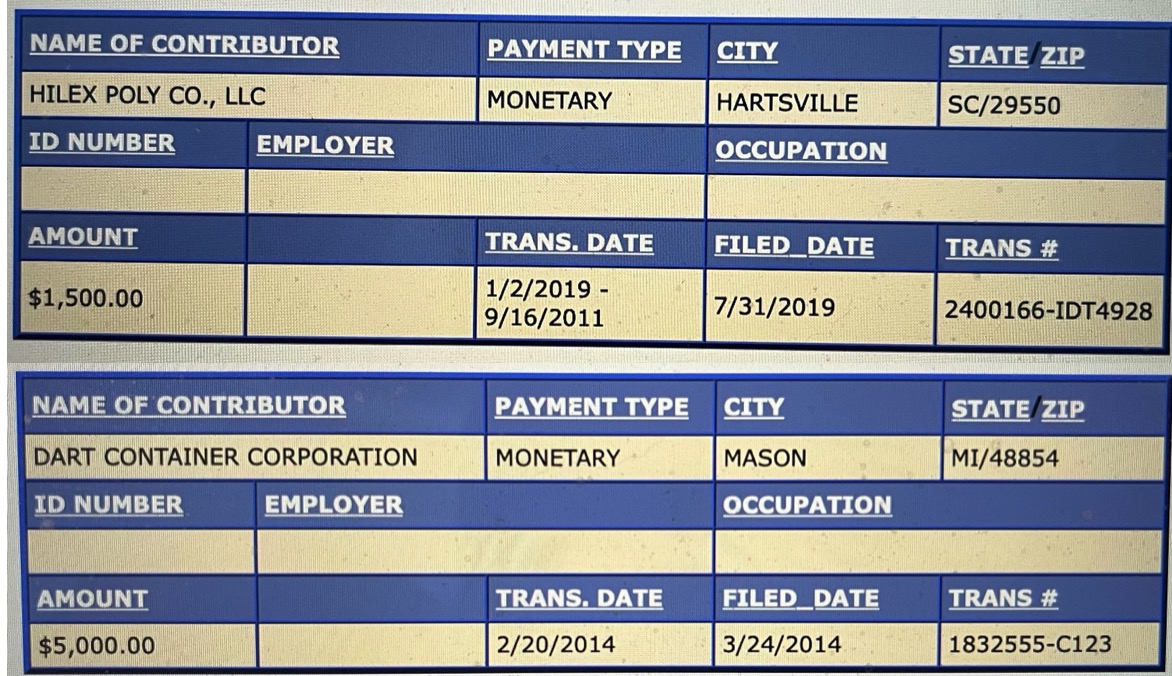Comments
ENVIRONMENT - Have you ever winced at the sight of thick plastic bags at the food checkout? Or cringed upon finding them on the street or stuck in a storm drain?
Did you ever wonder how such monstrosities exist in a state that supposedly has on the books a ban on plastic grocery bags?
Ten years after passage of a landmark California law intended to stop plastic blight from throwaway bags, state lawmakers last week finally shut a loophole that led to a disastrous rise in plastic waste sent to dumps or strewn on roadsides, beaches, arroyos, and neighborhoods.
Passage of the new, more comprehensive ban—on Friday, August 30, in the final days of the 2024 legislative session—is cause for celebration. But evidence from 2014 shows that, far from an accident or unintended consequence, the loophole in the law is a legacy of former state Senator Kevin de Leon. Now an embattled L.A. Councilmember desperately fighting for re-election against a progressive challenger, de Leon negotiated the loophole into the 2014 law while soliciting campaign contributions from plastic companies.
The “De Leon Loophole,” as it came to be known, allowed the heavier plastic to qualify under the definition of “reusable” bag established by terms of the law. It was first put to use in grocery bags by one L.A.-area manufacturer, Crown Poly, which was soon joined by others.
How costly to Californians and the environment was the De Leon Loophole? Estimates show that volume of waste from throwaway plastic bags in trash and dumps actually increased by 47 percent from 2014 to 2024, due primarily to the shift to thicker, heavier bags allowed under the 2014 law. LA Times.
Reports by the Natural Resources Defense Council (NRDC) show that Californians pay tens of millions of dollars in costs annually for local and state government agencies to retrieve plastic waste and blight from plastic bags in communities, rivers, oceans, and sewers, which can become clogged. Broken down per individual, the price tag for plastic cleanup comes in between $25 and $35 per year for each state resident.
The truth is that more than 150 local ordinances throughout California to ban throwaway plastic grocery bags led the shift towards truly reusable fabric and mixed-content bags and away from plastic. And it worked. By 2014, some localities reported a drop of more than 90 percent of the thinner plastic grocery bags in residential garbage, hand-held trash, and plastic blight retrieved from parks and stream beds.
But after passage of the new state law, in late 2014, out-of-state plastic companies began a blitz of paid signature-gathering in California. They delayed implementation of the 2014 law by putting not one, but two separate ballot measures on the November 2016 statewide ballot. Only with two hard-won victories—to defeat Prop 65 and approve Prop 67—did the statewide bag ban finally take effect. By then, the companies seeking to exploit the De Leon Loophole had made inroads with their products to capitalize on the glaring exception in the state law.
Californians continued to throw away more than one billion plastic bags each year, a number down only slightly from before the statewide ban gained force in late 2016.
De Leon had killed a cleaner version of the ban on plastic bags on the floor of the California state Senate on May 30, 2013. In fact, he cited the interests of Crown Poly to justify his efforts to quash it. He also invoked possible loss of profit and employment at companies that survive on their polluting products with rhetoric that treated female workers at Crown Poly as pawns. “This is about jobs, about livelihoods,” said de Leon. “So one thing that’s indisputable is how you mitigate this issue with regards to the potential, real, future unemployability of these women.” CA State Senate Media Archive.
Before and after that action, de Leon sought and collected campaign contributions from out-of-state plastic companies. These include Hilex Poly, based in South Carolina, one of the most prolific plastic polluters in the nation. He also received thousands of dollars more after carving the loophole in early 2014, including from Dart Container, based in Michigan.
The bills just passed by state lawmakers, AB 2236 and SB 1053, won overwhelming approval in the legislature. Not a single Democrat voted against them. All signs point toward their signing by Governor Newsom and enactment in the weeks ahead. Like many shifts in state law that affect retail practices and inventories, there is a generous phase-in date of January 2026 for enforcement on the new ban.
Ten years later, after millions of dollars in spending on cleanup of plastic waste that could have been better devoted to making and marketing truly reusable bags throughout America, the De Leon Loophole is closed. All Californians have paid the price for his campaign fund-raising and misuse of legislative influence. It’s a reminder that using our power as voters wisely is not only crucial to safeguarding the environment from harm, but also to protecting ourselves.
[Above] Heavier, thicker plastic bags in California resulted from a loophole in the 2014 statewide ban carved by then state Senator Kevin de Leon.

Kevin de Leon solicited and received thousands of dollars in campaign contributions from out-of-state plastic companies, including Hilex Poly and Dart Container.
(Hans Johnson is a longtime leader for LGBTQ+ human rights, environmental justice, and public education. His columns appear in national news outlets including USA Today and in top daily news outlets of more than 20 states. A resident of Eagle Rock, he is also president of East Area Progressive Democrats (EAPD), the largest grassroots Democratic club in California, with more than 1,100 members.)
















